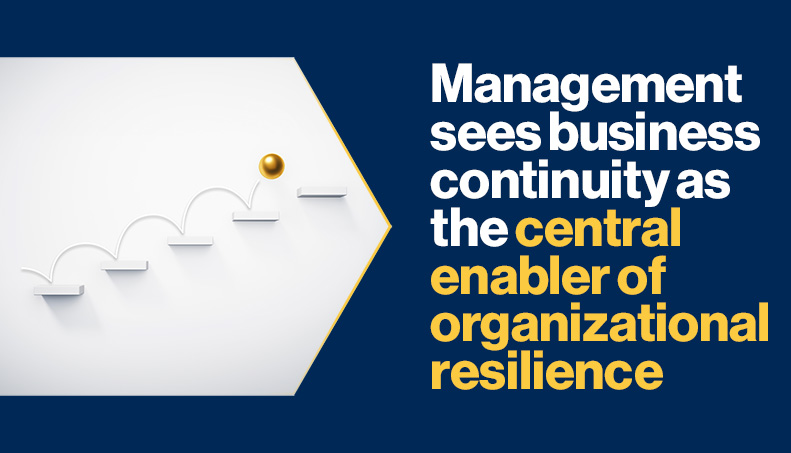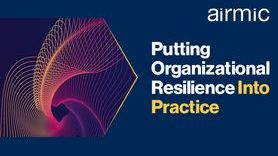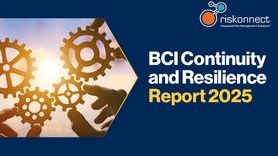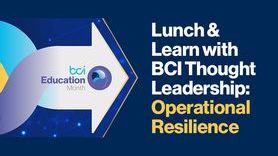Management sees business continuity as the central enabler of organizational resilience – BCI Continuity & Resilience Report 2023

Business continuity managers see their roles expanded to focus on longer-term and more strategic elements of resilience
The BCI has launched the BCI Continuity & Resilience Report 2023, which explores the status of business continuity and resilience within organizations. Sponsored by Riskonnect, this report provides an in-depth review of the sector obtained through survey responses and structured interviews with senior resilience professionals.
The statistics this year show a continuation of the ‘definition confusion’ highlighted in last year’s report, where half of organizations have yet to internally define, or even understand, the differences between business continuity and resilience.
Incoming operational resilience regulation has helped financial services organizations to better understand how operational resilience and business continuity can work together to ensure organizational resilience, but differences in definitions between sectors are broad. However, definition confusion is failing to cause a barrier to building resilient practices as most organizations are integrating resilient processes as common practice, and one in four now has dedicated resilience teams. This shows a growing commitment to resilience as a function.
Furthermore, three-quarters of respondents report that responsibility for resilience lies with the C-suite, as per good practice. This demonstrates a growing understanding of the importance of embedding resilience across all tiers of an organization. In some cases (6.8%), this means a shared responsibility among C-suite members, while the majority say that either the chief executive officer (26.5%), chief operations officer (12.9%), or chief risk officer (12.9%) holds the ultimate accountability.
Business continuity and resilience professionals: a changing role?
As roles are expanding, practitioners recognize that their roles now have a greater strategic remit. This year, on average, practitioners rated their roles as 53% strategic and 47% operational. This follows the trend noted in previous years that professionals are starting to become trusted advisors on longer-term resilience issues and shows professionals’ focus is expanding from traditional operational duties (developing plans, conducting risk assessments, and ensuring services could be restored after a disruption) to also include strategic planning responsibilities. This includes, for example, gathering intelligence on emerging risks and providing proactive guidance on strategic measures that organizations should take to improve their resilience. As further corroboration of this, 41.9% of business continuity managers have either recently seen their job title changed to include ‘resilience’ or expect that it will do so soon.
New role, new skills
As roles expand, so do the attributes needed by resilience professionals to perform in their roles. Over recent years, people skills have become a crucial part of the catalogue of skills required. Resilience managers now have to be able to “make things happen” (76.8%), be relationship builders (76.4%), and be empowering (74.6%), whilst also being empathetic (73.9%). However, this year we are seeing a return to some of the more traditional skills going to the top of the table, hinting that the profession is seeking to ensure that tried and tested rules and principles remain the backbone of the industry. Indeed, in 2023, being “process orientated” (83.5%) and “a good planner” (79.0%) are the top two attributes of a resilience manager. Furthermore, as the skills field becomes more complex and competitive, the importance of education from an academic (71.3%) and professional (67.4%) perspective has shifted towards the top half of the table this year.
Increased resources for business continuity and resilience programmes
The level of resources dedicated to business continuity and resilience has long been a concern for professionals in the field, but major disruptions in recent years have showcased the importance of these functions to those holding the budget strings. Indeed, the report finds that two-thirds of organizations have seen an increased level of financial and resource support within the past year. Furthermore, more than 80% also said that the importance of having a business continuity and resilience programme has heightened recognition, with the increased visibility of the sector.
Commenting on the report results, Rachael Elliott, Head of Thought Leadership, BCI, said: “The pandemic caused many organizations to review their business continuity and resilience processes, with many finding the processes and procedures did not match current working practices and the ever-increasing risk landscape. As a result, many organizations moved to more agile working environments, ‘lite’ business continuity plans, and better collaborative practices. Now these ‘new’ ways of working have become embedded, the report shows that professionals are now moving to formalise these processes; ensuring processes and planning to support them. However, the primary finding of this report is the expansion of professionals’ roles into an exciting new domain, introducing techniques such as longer-term horizon scanning, strategic advice on resilience to the board, and seeking to ensure external stakeholders are protected in the case of an incident.”
Brian Zawada, Vice President of Strategy and Innovation, at Riskonnect, added: "It was an honour to partner with the BCI on this important study. The report shows the continued maturation of our profession and the business continuity and resilience discipline in general. I feel that many of the conclusions drawn based on survey participant input can influence how we think about preventing and preparing for disruption, thus increasing the value we deliver in the next calendar year and beyond."
For more information, please contact the BCI: [email protected]









































